World
The Silent Struggles of Survivors: Sexual Violence in Kherson
Explore the untold stories of survivors in Kherson as they navigate the silent struggles of sexual violence. This poignant piece sheds light on their resilience, the impact of trauma, and the urgent need for support and awareness.
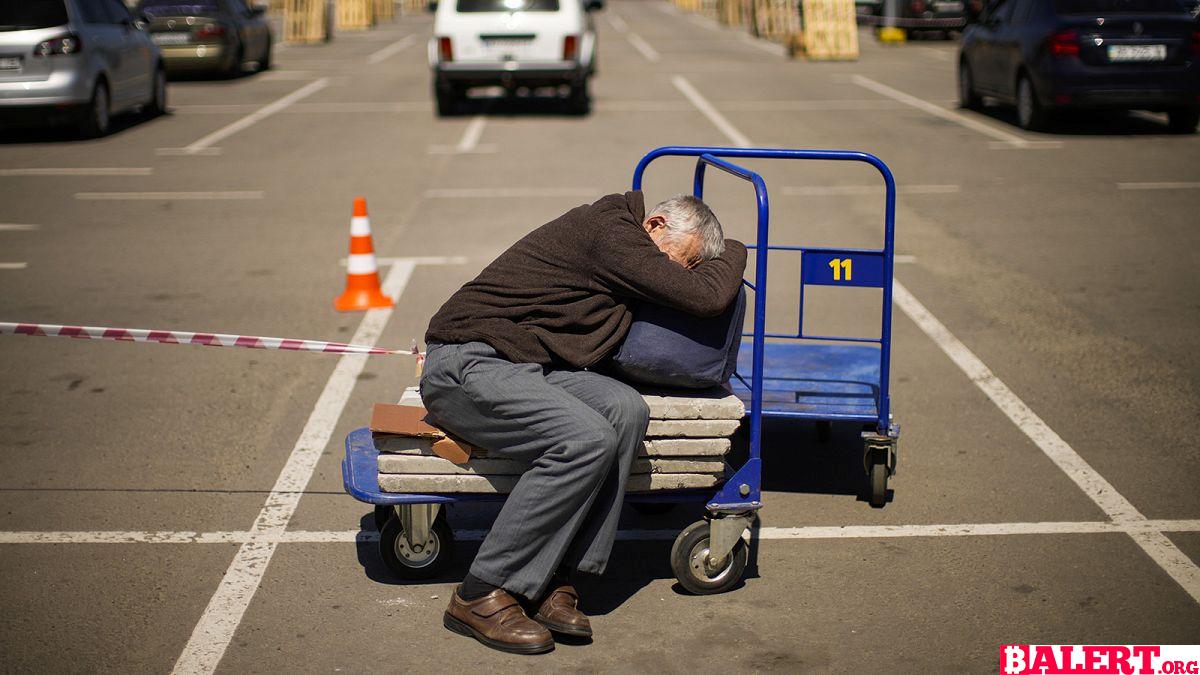
The Silent Struggles of Survivors: A Story from Kherson
Warning: This story discusses sexual violence.
Oleksiy Sivak, a 40-year-old man from the coastal city of Kherson, has discovered solace in the power of conversation. Before the full-scale invasion of Ukraine by Russia in 2022, he dedicated nearly two decades of his life to the maritime industry, serving as a sailor across international merchant and passenger fleets. The sea became not just his workplace, but an integral part of his identity.
“But the invasion shattered my career and my way of life,” Sivak recalls, speaking to Euronews. As Russian forces launched their assault on Ukraine, they quickly seized control of Kherson, hoping to establish a puppet regime akin to the Donbas region. For six months, the city fell under the dark shadow of occupation, during which time the occupiers set up detention facilities to suppress any resistance.
Sivak recounts a harrowing experience: he was unlawfully detained and subjected to torture at the hands of Russian soldiers for two of those six months. “I endured both physical and psychological torture, including sexual violence,” he reveals. The city was liberated in November 2022, allowing Sivak to escape his captors. “During the liberation, our invaders fled,” he explains. “I was fortunate; there was no room for me in the vehicle transporting other prisoners, so I was simply set free without documents, yet I managed to make my way home.”
This marked the beginning of a long and arduous journey for Sivak. “Everything changed during my captivity,” he admits.
UN Reports on Sexual Violence: A Grim Reality
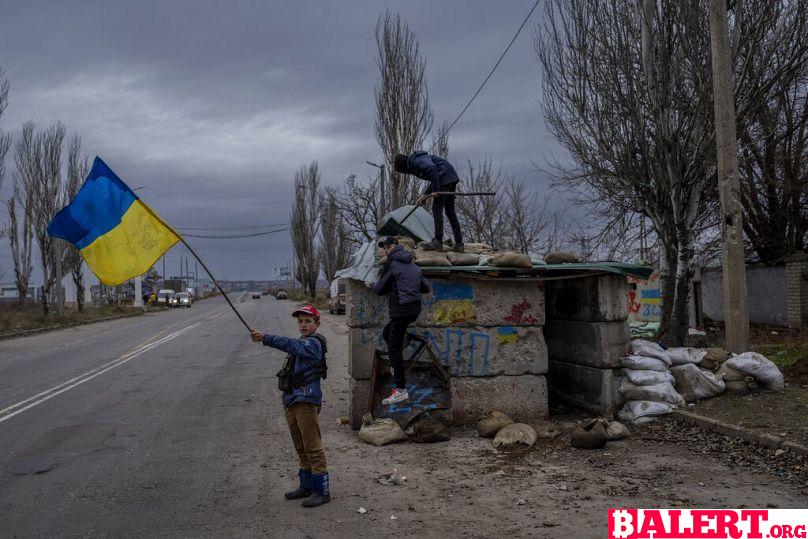
Extensive evidence has emerged indicating that Russia has systematically weaponized sexual violence—encompassing acts such as rape, genital mutilation, forced nudity, and other forms of torture—against men and boys in Ukraine over the past two years. Such actions fall under the definition of war crimes according to international law.
The latest report from the United Nations Security Council regarding conflict-related sexual violence indicates that the investigatory body has documented 263 cases perpetrated by Russian armed forces, law enforcement, and penitentiary services against civilians and prisoners of war in Ukraine since the onset of the full-scale invasion in 2022. Notably, over half of the identified victims are male (163), with 83 being female, including 10 underage girls and two boys.
Prior reports from Human Rights Watch have corroborated the use of sexual violence against men by Russian authorities, revealing that specific detention facilities have been constructed for confinement, interrogation, torture, and execution in regions like Kherson. A subsequent report by the UN’s human rights office, OHCHR, highlighted that these atrocities often accompany severe physical abuse, including beatings, strangulation, and threats of sexual violence.
Among the harrowing testimonies documented, one Ukrainian prisoner detailed an attempted rape with a PVC pipe during an interrogation, while another survivor recounted being forced to undress and subjected to electric shocks to his genitals, with threats of rape looming over him.
Throughout the months of imprisonment and torture, Sivak found a glimmer of hope in the camaraderie of his fellow inmates. “We became each other’s psychologists and confidants,” he reflects. “Their jokes, empathy, and simple gestures of kindness provided us with a lifeline.”
Creating a Safe Haven for Survivors
Sivak estimates that “thousands” of Ukrainian men carry the deep scars of sexual violence inflicted by the Russians. Meanwhile, many others remain unaccounted for—approximately 37,000 Ukrainians, including civilians and children, are believed to be held in Russian prisons, according to the Ukrainian ombudsman’s office.
In response to this dire situation, Sivak founded an organization called Alumni about a year ago. This initiative offers peer-to-peer mental health support for men, featuring regular in-person meetups, workshops, referrals, and soon, online services. The goal is to create a supportive network for other survivors, fostering open conversations about their experiences.
Importantly, Sivak emphasizes that Alumni does not aim to “treat” individuals but rather helps them forge a new path in life. “We assist them in acknowledging their past without erasing it, allowing them to integrate their experiences into their journey forward,” he states.
Alumni serves as a sanctuary for survivors to confront their trauma and learn how to coexist with it, a monumental challenge that will shape their futures. “We do this not only for ourselves and our brothers but especially for those who are still enduring captivity and torment,” Sivak asserts. “While we cannot change the past, we strive to make the present bearable and the future brighter for all who have suffered.”
The aftermath of such trauma often leaves survivors with a multitude of injuries, both physical and psychological, including post-traumatic stress disorder. UN Secretary-General António Guterres remarked in June that the ramifications of conflict-related sexual violence are enduring and destructive, unraveling the very fabric of communities.
A Journey Towards Healing
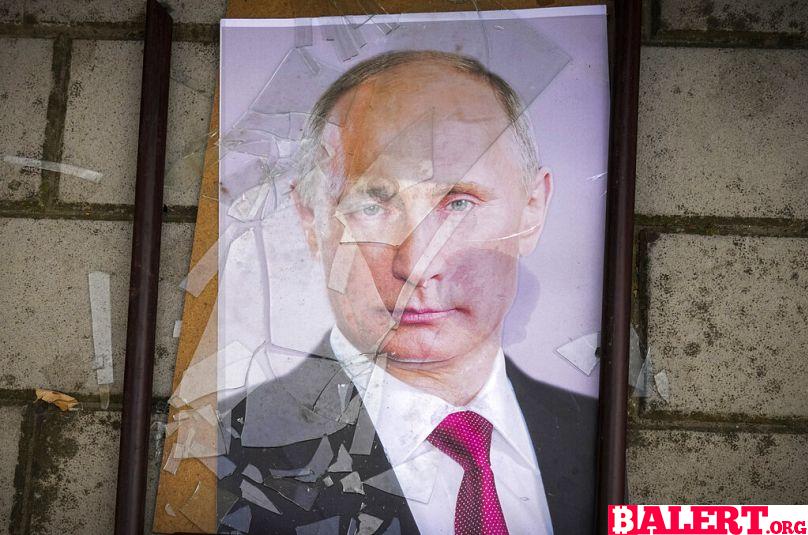
Oleksandr Reshetov, a lifelong resident of Kherson, shares a similar story. At 34, he cherishes the memories of his first love and close friendships formed in this cherished city. Before the war, he found satisfaction in running a furniture store, collecting antiques, and arranging flowers for his loved ones. “This city means the world to me,” he expresses.
However, in the wake of the ongoing conflict, Reshetov’s life has been irrevocably altered. “The war has reshaped my existence,” he states. “It has made me value what I have.”
Having experienced sexual violence at the hands of Russian forces, Reshetov initially turned to alcohol as a means of escape from his pain. He eventually attended an Alumni retreat in Mykolaiv, where he found the support he desperately needed. “I was treated not as a victim but as a friend. I felt a sense of belonging,” he reflects. “Despite our varied backgrounds, we united in our shared experiences.”
Through his involvement with Alumni, Reshetov has managed to curb his alcohol consumption and dedicate more time to his family. He has since stepped into the role of a mentor within the organization, eager to assist others who are navigating similar struggles. “I realized I was not alone; many have faced the same ordeal, including CRSV,” he says.
Understanding the Broader Implications of Violence
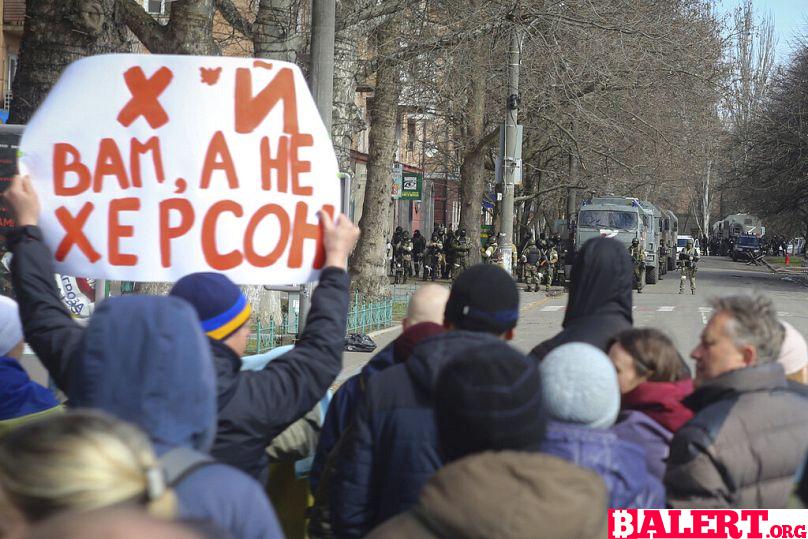
Charu Hogg, founder and director of the All Survivors Project, has dedicated her work to researching the experiences of men and boys who have survived sexual violence during conflict. Since its inception in 2016, her organization has engaged with survivors across various regions, from Afghanistan and Colombia to the Central African Republic. Yet, Hogg notes that Ukraine stands out for its alarming level of documented abuse.
The focus of her organization on male survivors—often overshadowed by the narratives surrounding female victims—is crucial, as these cases remain under-explored. “We are the only global organization addressing sexual violence against men and boys, focusing on access to justice, help, and prevention,” she explains.
Recently, All Survivors Project began collaborating with Alumni to identify the barriers male victims face in accessing healthcare. Over the next year, Hogg’s team will conduct interviews with Alumni members to gain insight into their experiences, aiming to enhance documentation and provide valuable information to Ukraine’s national prosecution agency.
The ultimate goal is to hold perpetrators accountable, a mission that various international bodies have pursued since these allegations surfaced. Two years ago, the International Criminal Court in The Hague issued an arrest warrant for Russian President Vladimir Putin, who dismissed these claims as “outrageous” and “unacceptable,” yet has provided no evidence to refute them.
The Power of Shared Voices
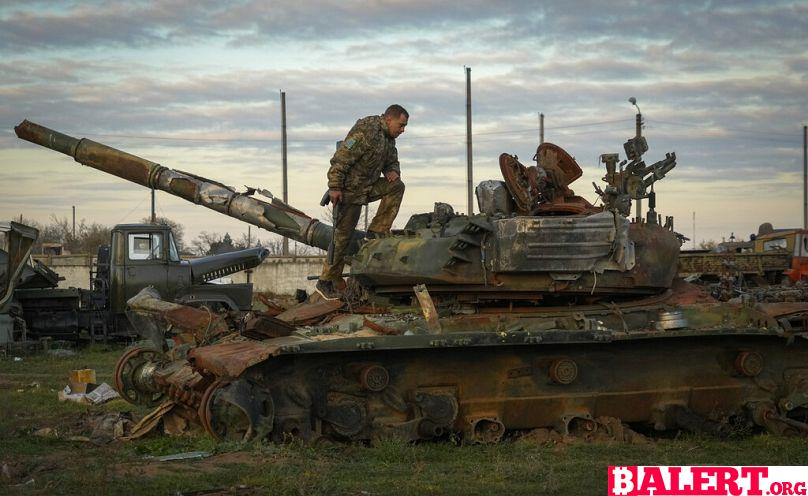
Sivak’s liberation coincided with the return of Ukrainian soldiers to Kherson. He believes the international community plays a vital role in addressing conflict-related sexual violence through support for Ukraine’s defense efforts and sanctions against aggressors. “To prevent such atrocities, there must be appropriate accountability,” he insists.
Moreover, he advocates for investments in programs such as those championed by All Survivors Project, which aim to aid survivors in their rehabilitation, reintegration, and adaptation to society.
As Sivak and his Alumni colleagues navigate their post-war realities, they face significant challenges, including family breakdown, social isolation, and mental health disorders stemming from traumatic experiences. For this reason, Alumni remains dedicated to fostering dialogue and connection among those living with the aftermath of such violence. Ensuring that survivors feel heard and supported by others who understand their struggles is central to the organization’s mission. “In English, ‘Alumni’ signifies a graduate or former student without a diploma. Yet it can also represent former prisoners,” he explains. “After our release, we didn’t stop talking; we kept the dialogue alive.”
If this story has raised issues for you and you are in Europe, please reach out to a country- and gender-specific support service for assistance.
World
Dominique Pelicot Testifies in Harrowing Rape Trial
Join us as Dominique Pelicot courageously testifies in a harrowing rape trial, shedding light on the complexities of trauma and justice. Her powerful story raises crucial questions about the legal system and the importance of support for survivors.

Dominique Pelicot Takes the Stand in Shocking Rape Trial
In a courtroom drama that has captivated France and garnered international attention, Dominique Pelicot, the man at the center of a harrowing rape trial, finally addressed the court. With tears streaming down his face, he recounted how his wife had been instrumental in helping him cope with a tumultuous past marked by trauma. He revealed that he had endured a sexual assault at the tender age of nine while hospitalized, and he also witnessed a gang rape during his teenage years while working as an apprentice electrician on a construction site.
“She didn’t deserve this, I acknowledge that,” Mr. Pelicot stated, his voice barely audible as he struggled to convey his emotions. The gravity of the situation weighed heavily on him, and the courtroom fell silent, straining to catch his every word.
Now 71 years old, Mr. Pelicot faces serious allegations of drugging his wife, Gisèle Pelicot, whom he has been married to for half a century, over a span of nearly ten years. Prosecutors contend that he used drugs to render her comatose, allowing him to rape her repeatedly. Furthermore, authorities allege that he went so far as to invite numerous men into their home, facilitating a nightmarish scenario where they, too, engaged in the assault of his wife.
Overall, 51 men, including Mr. Pelicot, are on trial concurrently, primarily facing charges related to the aggravated rape of Ms. Pelicot. Among them, one individual has already pleaded guilty to similar crimes, admitting to drugging his own wife to assault her and inviting Mr. Pelicot to partake in the horrific act while she was incapacitated.
Mr. Pelicot’s unexpected testimony came after a tumultuous start to the trial. Just a week in, he was stricken with severe health issues that forced him to miss four consecutive days in court. The head judge ultimately decided to postpone proceedings, as Mr. Pelicot was diagnosed with kidney stones, a kidney infection, and prostate complications, adding yet another layer of complexity to this already harrowing case.
World
Meta Bans Russian State Media Outlets from Social Media Platforms
Explore the implications of Meta’s decision to ban Russian state media outlets from its social media platforms. Understand the impact on information dissemination and the ongoing battle against misinformation in the digital landscape.

Meta Imposes Global Ban on Russian State Media Outlets
In a significant move, Meta Platforms, Inc., the parent company of Facebook, has announced the prohibition of Russian state media outlets, including RT (Russia Today) and Rossiya Segodnya, from all its social media platforms. The decision stems from the company’s concerns regarding the deceptive strategies employed by these media organizations to execute covert influence operations across the internet.
Meta made this announcement on Monday, emphasizing that the ban will be enforced worldwide across its various platforms, such as Instagram, WhatsApp, and Threads. The rollout of this ban is expected to take place over the coming days.
Statement from Meta
A spokesperson for Meta elaborated on the decision, stating, “After careful consideration, we have expanded our ongoing enforcement actions against Russian state media outlets. As a result, Rossiya Segodnya, RT, and other affiliated entities are now banned from our applications globally due to their involvement in foreign interference activities.”
For further insights into this development, watch the video in the player above.
World
Trump Recalls Alleged Assassination Attempt While Golfing
Explore Donald Trump’s chilling recollection of an alleged assassination attempt he experienced while enjoying a round of golf. Delve into the tense moments and his reflections on safety, fame, and the unpredictability of public life.

In a recent interview on the social media platform X, Republican presidential nominee Donald Trump recounted a harrowing incident he claims to have experienced while playing golf. Trump described how, during a peaceful Sunday morning round with friends, the tranquility of the day was abruptly shattered by the sound of gunfire in the air.
“It was a beautiful day, everything was just perfect,” Trump reflected. “Then all of a sudden, we heard shots being fired—probably around four or five in total.” He went on to explain that a Secret Service agent was the first to spot the suspect, who was allegedly armed with an AK-47, a powerful assault rifle.
“The agent saw the barrel of the weapon and immediately took action, returning fire at the barrel and aiming in the direction of the bushes,” Trump detailed. “I would have loved to have sunk that last putt, but we decided it was best to leave the scene promptly.”
Trump expressed his gratitude towards the agents and a vigilant civilian who aided in tracking down the suspect, who was eventually apprehended following a high-speed chase.
Suspect Faces Multiple Federal Gun Charges
The FBI has identified the suspect as Ryan Wesley Routh, accusing him of targeting Trump during his time at the golf club in West Palm Beach, Florida. According to an FBI report, Routh had allegedly hidden among the hedges of the golf course for an astonishing 12 hours. Authorities discovered an SKS-style assault rifle, a GoPro camera, and a bag of food at the scene.
The 58-year-old Routh is now facing two serious federal gun charges. If convicted on both counts, he could face a combined maximum sentence of 20 years in prison. Notably, neither of the charges is directly related to an assassination attempt. The first charge pertains to possessing a firearm despite a prior felony conviction, which carries a potential 15-year sentence, a fine of $250,000 (€225,000), and three years of supervised release.
The second charge involves possession of a firearm with an obliterated serial number, which could result in a five-year prison term, the same financial penalties, and also three years of supervised release. As the investigation continues, additional charges could be forthcoming.
While the motive behind Routh’s actions remains unclear, his digital footprint reveals strong political affiliations, particularly concerning issues surrounding Ukraine and China. Routh consistently expressed support for Ukraine across various social media platforms, even claiming to have orchestrated a recruitment scheme for international volunteers aiming to assist Ukraine in its fight against Russia’s invasion. This behavior has been denounced by Ukrainian soldiers and members of the International Legion, who disavowed Routh’s actions and motives.
-

 Business5 months ago
Business5 months agoThe Significance of Jackson Hole: A Central Banking Tradition
-

 Tech4 months ago
Tech4 months agoNew Leaks and Features About the Samsung Galaxy S25 Ultra
-

 Business6 months ago
Business6 months agoObituary: Dan Collins
-

 Article7 months ago
Article7 months agoCreative Design Applications Developed with Artificial Intelligence
-

 Business4 months ago
Business4 months agoBhutan’s Strategic Investment in Bitcoin: A New Era for the Himalayan Kingdom
-

 World4 months ago
World4 months agoThierry Breton Resigns: Impact on European Union Leadership
-

 Gaming4 months ago
Gaming4 months agoNew Details and Trailer Released for Dead Rising Deluxe Remaster
-

 Gaming4 months ago
Gaming4 months agoNew Details for Alan Wake 2 and PlayStation 5 Pro Announcement












